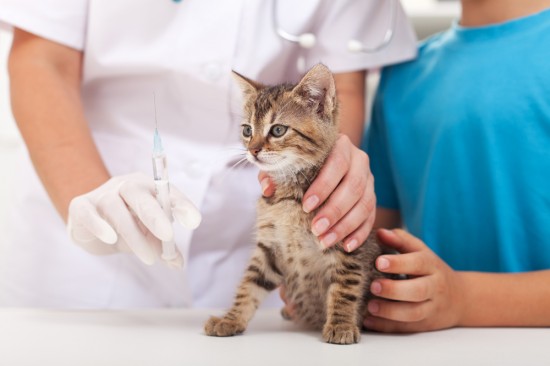One of the most important responsibilities that you have for your dog is to help prevent common diseases or disorders that can occur, and it is nearly impossible to do so unless you have some familiarity with the different types of disorders that can occur in the many different types of dog breeds. There are hundreds of types of illnesses and disorders possible, but the most frequently experience are those that affect the eyes, muscles, bones, and central nervous system. This article will discuss some of the different types of disorders more commonly experienced in dog breeds throughout the world.
Eye problems are very common in many different dog breeds and some of these abnormalities include glaucoma, cataracts, and blindness, all of which can negatively affect the lifestyle of your dog, and can increase the responsibility you have as the dog's guardian.
There are a number of nervous system disorders in certain dog breeds that may be genetically inherited. The Irish Setter can experience paralysis in the back and front legs, and the Fox Terrier can experience muscle coordination failure. Breeds such as the Chihuahua, English Bulldog, and Cocker Spaniel all run the risk of brain swelling which can have a number of negative affects on the body.
Inguinal hernias is another common disorder that can be present in a number of different dog breeds like the Basenji, the Lhasa Apso, the Cairn Terrier, and the Pekingese. Inguinal hernias are a condition where the gut of the dog extends down into the groin, which can be very uncomfortable and painful. Another type of hernia which is fairly similar to that of the inguinal hernia is the umbilical hernia, which is when the gut extends through the navel, which is also very uncomfortable. Some of the breeds that can experience this type of hernia are the Cocker Spaniel, Collie, Bull Terrior, Pointer, Pekingese, Weimaraner, Airedale Terrior, and more.
Early detection is the key to keeping your dog's disorders in check and is also important if you want to keep your dog healthy and active. This can be done by performing routine checks, which may only take a small amount of your time, for common disorders that you would see in dogs. Therefore, it is necessary to give your dog a basic check-up about once a week. Doing so can help prevent these diseases from becoming a problem, and it can also help save you money by not incurring higher expenses down the road.
You can perform a routine check by first giving your dog a full body rub or massage, which your dog will love but will also give you a chance to feel any abnormalities or notice any signs of issues that may be occurring with your dogs skin. While you are doing this, you can also check for any kinds of lumps, bumps, or other irregularities that would not commonly be found on your dogs body. If you notice swelling, this could possibly be a sign of other issues such as parasites, heart trouble, or cancer.
Your dog should be breathing regularly and it should not be labored, but rather it should be quiet and smooth when he is not panting. There could be a respiratory problem if your dog is breathing heavily or if there is wheezing associated with his or her breathing, in which case you would want to have your dog checked by a veterinarian as soon as possible.
Check that your dog has a strong heartbeat that is not abnormal, and his pulse should be within the normal range. If you're wondering how to check your dog's pulse, you can do so by placing your hand on the chest near the left elbow. Your dog's pulse should be within a range of 60 to 160, depending on the type of breed and size of your dog.
Some other things that you should check on your dog include the eyes, which you would check for signs of cataracts, the ears, which you would check for signs of ear infection or mites, and also check the mouth to make sure that he has healthy teeth and gums.
If you're looking to keep your dog healthy and happy, be sure to perform routine checks so that you can detect any of these disorders early enough in order to prevent them from becoming a problem.

 Rabbit Basics - Ten Facts All Potential Owners Should Be Aware Of
Rabbit Basics - T
Rabbit Basics - Ten Facts All Potential Owners Should Be Aware Of
Rabbit Basics - T
 Puppy Aggression Towards Older Dogs
Puppy Aggression
Puppy Aggression Towards Older Dogs
Puppy Aggression
 Frequently Asked Questions About Spaying Cats
Frequently Asked
Frequently Asked Questions About Spaying Cats
Frequently Asked
 All About Feline Parvovirus
All About Feline
All About Feline Parvovirus
All About Feline
 Introduction To Keeping Leopard Geckos
Introduction To K
Introduction To Keeping Leopard Geckos
Introduction To K